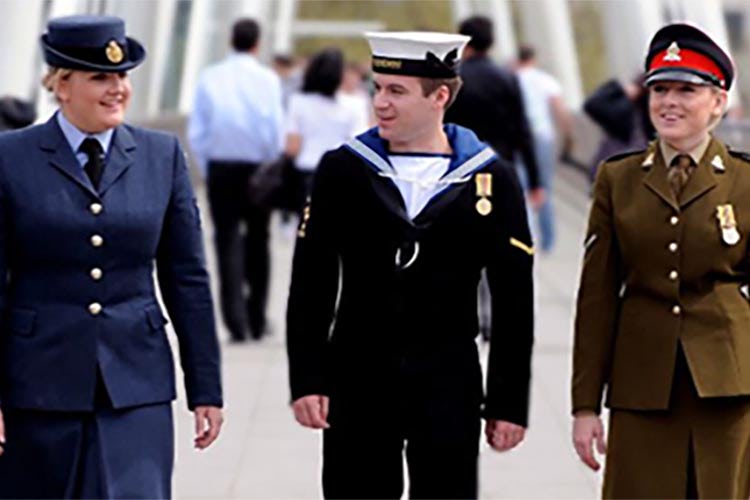Ministers encourage Universities To Support Further Education For Veterans

Veterans are 10% less likely to have a degree than general members of the UK population, according to the UK government. Research shows that just 20% of veterans have a degree as their highest level of education.
This low figure has resulted in ministers offering universities £5m to sign up to the Armed Forces Covenant – a scheme designed to aid ex-service personnel through further education.
But is it really worth veterans studying for a degree?
The value of veterans
Veterans have a lot of skills and experience to offer to workplaces, including teamwork and leadership, problem-solving, good time-keeping, excellent communication and resilience. Although veterans possess so many sought-after skills, 12% of them are in a job that doesn’t utilise the skills that they already have.
By enhancing their skills with a university degree that offers practical and analytical skills, veterans will become some of the most indispensable people in the workplace. As a result, employers won’t want to lose them and will be prepared to do anything to keep hold of them, including promoting them and increasing their salary.
This shows how crucial it is for universities, employers and veterans to all work together to improve the expertise of veterans in the job market.
Help with further education
Veterans needn’t worry about the cost of further education. As of April 2019, 57 out of the 136 universities in the UK had signed up to the government’s Armed Forces Covenant.
The Covenant provides a Service Leavers Scheme, which covers the tuition fees of veterans who haven’t previously studied at the higher education level. With university in the UK costing as much as £9,250 per year, this is a significant financial help for veterans. In comparison, veterans in the U.S. get up to 36 months of financial help under the GI bill.
Veterans who wish to study for longer than this need to cover the cost themselves, but if they sustained an injury during active service, they may qualify for compensation. The amount will depend on the number of injuries they experienced, but the cost can greatly help with higher education costs too. Both of these schemes show that the British and U.S. governments are dedicated to supporting veterans through higher education.
A need to branch out
FE Insight events for Service Leavers: Six regional FE Insight events for Service Leavers and FE providers take place at locations around England during March 2020. They will give provide attendees with information about the Further Forces programme,… https://t.co/6nxnVP3SkQ pic.twitter.com/SnPoRcPd2z
— FE News – The #FutureofEducation News Channel (@FENews) March 10, 2020
Despite the number of employed veterans and non-veterans sitting at similar levels (78% vs (79%), more than one in five veterans have difficulties obtaining employment. Research shows that veterans tend to favour certain industries, with male veterans seeking skilled trade jobs and manufacturing and construction jobs, and females preferring administrative roles and health and social work.
But when veterans obtain a university degree, they’ll open their minds to a whole host of new job opportunities, which could result in them building a more solid and lucrative career for themselves.
Many veterans don’t have a university degree, and this could be hindering that career. Thankfully, by opting to enrol in further education, they can easily gain the skills and the qualifications they need to better themselves and make them stand out from their fellow employees.












Responses